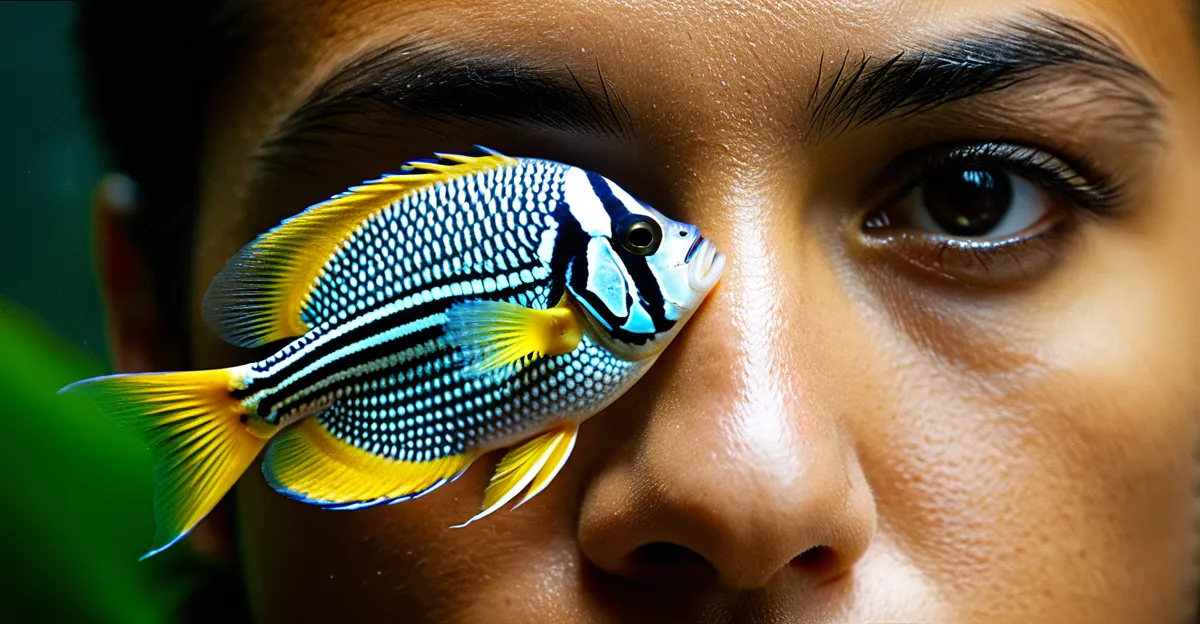Debunking the Myths: Common Misconceptions About Keeping Exotic Fish as Pets
Keeping exotic fish as pets can be a fascinating and rewarding hobby, but it is often shrouded in myths and misconceptions. These misconceptions can lead to poor care, unhealthy fish, and a disappointing experience for the aquarium enthusiast. Let’s dive into some of the most common myths and set the record straight.
The Myth of the Low-Maintenance Aquarium
One of the most pervasive myths is that keeping an aquarium is easy and requires minimal maintenance. This could not be further from the truth.
This might interest you : What are the best practices for grooming your pet guinea pig?
The Reality of Aquarium Care
Maintaining a healthy aquarium, especially one with exotic fish, is a significant commitment. Here are some key aspects of aquarium care that are often overlooked:
-
Water Changes: Regular water changes are crucial to maintain good water quality. This involves removing a portion of the tank water and replacing it with fresh, dechlorinated water. Frequent water changes help to remove toxins like ammonia and nitrite, which can be dangerous to fish.
“`plaintextAlso read : How Do Unusual Pets Shape the Lives of UK Families?
-
Change 10-20% of the tank water weekly.
-
Use a gravel vacuum to remove debris.
-
Monitor water parameters regularly.
“` -
Water Quality: Water quality is paramount for the health of your fish. This includes monitoring pH, ammonia, nitrite, and nitrate levels. Tropical fish, in particular, are sensitive to changes in water conditions.
“`plaintext -
Invest in a good water test kit.
-
Perform regular water tests.
-
Adjust water parameters as necessary.
“` -
Feeding: Feeding your fish is not just about throwing in some flakes or pellets. Different species have different dietary needs, and overfeeding can lead to poor water quality and unhealthy fish.
“`plaintext -
Research the specific dietary needs of your fish species.
-
Provide high-quality food such as freeze-dried or live foods.
-
Avoid overfeeding; only feed what the fish can consume within a few minutes.
“`
Quote from an Expert
“Many people think that keeping an aquarium is as simple as filling a tank with water and adding some fish. However, it’s a complex ecosystem that requires regular maintenance and monitoring to ensure the health and well-being of the fish,” says Dr. Jane Smith, a renowned aquarium expert.
The Goldfish Myth
Another common misconception is that goldfish are easy to care for and can thrive in small bowls or tanks.
The Truth About Goldfish
Goldfish are often misunderstood and mistreated due to this myth. Here are some facts about goldfish:
-
Space: Goldfish need space to grow. They can grow up to 6-8 inches in length and require a tank with a minimum capacity of 20 gallons for the first fish, with an additional 10 gallons for each additional fish.
“`plaintext -
Avoid keeping goldfish in small bowls or tanks.
-
Provide a spacious tank with adequate filtration.
“` -
Water Conditions: Goldfish produce a lot of waste and need good water quality to thrive. They require regular water changes and a well-established aquarium.
“`plaintext -
Ensure good water circulation and filtration.
-
Perform frequent water changes.
“`
Example
A friend once kept a goldfish in a small bowl and was surprised when it died after a few months. After learning about the proper care of goldfish, he set up a larger tank and now enjoys watching his goldfish thrive.
The Myth of the Hard-to-Care-for Tropical Fish
Many people believe that tropical fish are difficult to care for and are best left to experienced aquarists.
The Reality of Tropical Fish Care
While it is true that some tropical fish species can be challenging, many are quite easy to care for once you understand their needs.
-
Species Selection: Choose species that are known to be easy to care for, such as neon tetras, guppies, or zebra danios.
“`plaintext -
Research the specific needs of the species you are interested in.
-
Start with hardy species that can tolerate minor mistakes.
“` -
Established Aquarium: Tropical fish do best in an established aquarium where the water parameters are stable.
“`plaintext -
Allow the aquarium to cycle before introducing fish.
-
Monitor water parameters closely.
“`
Quote from a Hobbyist
“I started with a small tank and some easy-to-care-for tropical fish. Once I got the hang of it, I moved on to more exotic species. It’s all about understanding their needs and providing the right conditions,” says John Doe, an avid aquarium hobbyist.
The Feeder Fish Myth
Some people believe that feeder fish, such as guppies or goldfish, can be used to cycle an aquarium.
The Truth About Feeder Fish
Using feeder fish to cycle an aquarium is not only unnecessary but also inhumane. Here’s why:
-
Cycling the Tank: An aquarium can be cycled without fish by using fish food or ammonia supplements to simulate the presence of fish.
“`plaintext -
Use fish food or ammonia supplements to cycle the tank.
-
Monitor the tank’s water parameters during the cycling process.
“` -
Animal Welfare: Feeder fish are living animals and should be treated with respect. Using them to cycle a tank can lead to their death and is considered unethical.
“`plaintext -
Treat all fish with respect and care.
-
Avoid using feeder fish for cycling.
“`
Example
A local pet store once recommended using feeder fish to cycle a new tank. However, after learning about the humane and effective alternatives, the store now advises customers to use fish food or ammonia supplements instead.
The High-Fat Food Myth
Some aquarists believe that feeding high-fat foods to their fish is beneficial.
The Reality of Fish Nutrition
While fish do need some fat in their diet, high-fat foods can be detrimental to their health.
-
Balanced Diet: Fish need a balanced diet that includes a variety of nutrients. High-fat foods can lead to obesity and other health issues.
“`plaintext -
Provide a balanced diet with a mix of protein, carbohydrates, and fats.
-
Avoid overfeeding with high-fat foods.
“` -
Quality Food: High-quality foods such as freeze-dried or live foods are better options than high-fat commercial foods.
“`plaintext -
Choose high-quality foods that are nutrient-rich.
-
Rotate foods to ensure a varied diet.
“`
Quote from a Nutritionist
“Fish, like any other animal, need a balanced diet to thrive. Feeding high-fat foods can lead to health problems and shorten their lifespan,” says Dr. John Taylor, a fish nutritionist.
The Warm Water Myth
Many people believe that all exotic fish thrive in warm water.
The Reality of Water Temperature
While many tropical fish do thrive in warm water, not all exotic fish have the same temperature requirements.
-
Species-Specific Temperature: Different species have different temperature requirements. Some fish, like koi or goldfish, prefer cooler water, while others, like discus or angelfish, prefer warmer water.
“`plaintext -
Research the specific temperature needs of your fish species.
-
Ensure the tank is equipped with a reliable heater or chiller if necessary.
“` -
Stable Conditions: Fish thrive in stable water conditions. Avoid sudden changes in temperature, as this can be stressful for the fish.
“`plaintext -
Monitor water temperature regularly.
-
Avoid placing the tank near drafts or direct sunlight.
“`
Example
A friend once kept a tank with a mix of tropical and cold-water fish, thinking that warm water would be good for all of them. After learning about the different temperature requirements, he set up separate tanks for each type of fish and noticed a significant improvement in their health.
The Dangerous Fish Myth
Some people believe that certain exotic fish are too dangerous to keep as pets.
The Reality of Fish Behavior
While some fish can be aggressive or territorial, many are perfectly safe to keep in a well-maintained aquarium.
-
Research the Species: Understand the behavior and needs of the species you are interested in keeping.
“`plaintext -
Research the fish’s natural habitat and behavior.
-
Choose species that are compatible with each other.
“` -
Provide Adequate Space: Ensure that the tank is large enough to accommodate the fish’s adult size and provide enough hiding places and visual barriers.
“`plaintext -
Provide a spacious tank with adequate hiding places.
-
Avoid overcrowding the tank.
“`
Quote from an Aquarist
“Some fish are indeed more aggressive than others, but with proper research and care, even the most challenging species can thrive in a home aquarium,” says Sarah Johnson, an experienced aquarist.
Keeping exotic fish as pets can be a rewarding and fascinating hobby, but it requires a clear understanding of the myths and realities involved. By debunking these common misconceptions and providing the right care, you can create a thriving and healthy aquarium that brings joy and wonder to your life.
Practical Advice
- Start Small: Begin with easy-to-care-for species and gradually move to more exotic ones.
- Research Thoroughly: Understand the specific needs of the fish species you are interested in keeping.
- Maintain Good Water Quality: Regular water changes and monitoring of water parameters are crucial.
- Provide High-Quality Food: Feed a balanced diet that includes a variety of nutrients.
- Ensure Proper Conditions: Provide the right temperature, space, and environment for your fish to thrive.
By following these guidelines and avoiding common myths, you can enjoy the beauty and diversity of exotic fish in your own home aquarium.


